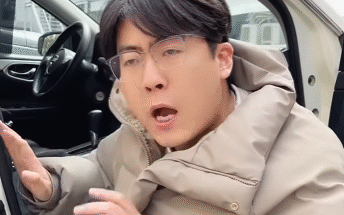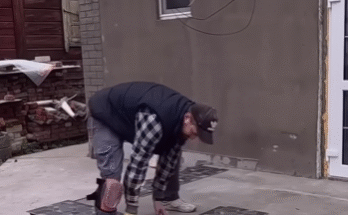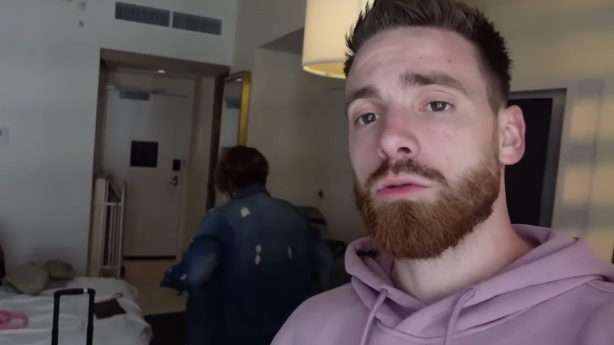
I remember the exact moment the email popped into my inbox. It was a chilly Monday morning in late February, and I was just settling in with my coffee when the subject line caught my eye: “Official Invitation to the White House.” For a moment, I thought it had to be spam or some elaborate prank. But the sender was legitimate. The presidential seal in the header was unmistakable.
I called my husband over, heart pounding. “You have to see this,” I said, barely able to contain myself.
He leaned over my shoulder and read the email out loud. “You and your family are cordially invited to the White House for the National Family Innovators Award Ceremony…”
He looked at me with raised eyebrows. “Did you… invent something?”
That’s when I remembered. Months ago, I had submitted a story and video about our community project: a mobile food pantry we’d started during the pandemic. It wasn’t high-tech, but it had fed over 2,000 families across three counties. I thought maybe someone would notice, maybe share it online, maybe replicate the idea. I never imagined it would get the attention of the White House.
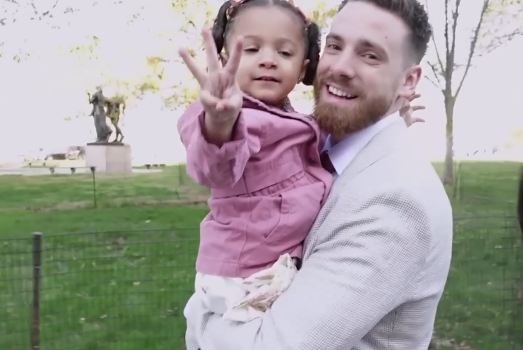
Within days, we had travel arrangements, a printed itinerary, and a strict dress code. Our two kids, Maya and Jordan, were more excited about missing school than meeting the President. “Will there be snacks?” Maya asked. “Will I get to pet the First Dog?” Jordan added, referring to the President’s famously friendly golden retriever.
We arrived in Washington, D.C., on a crisp Thursday afternoon. The sky was clear, the Capitol gleamed in the sunlight, and our nerves buzzed with excitement. Our driver took us straight to the hotel, where a White House liaison met us with a folder of final instructions. Everything was so official and detailed—it made us feel like minor celebrities.
The big day arrived, and we woke up early to prepare. I had brought my favorite blue dress, the one I wore to my sister’s wedding. My husband wore his only suit. Maya wore a new floral dress, and Jordan insisted on a bow tie that was slightly crooked no matter how many times we adjusted it.
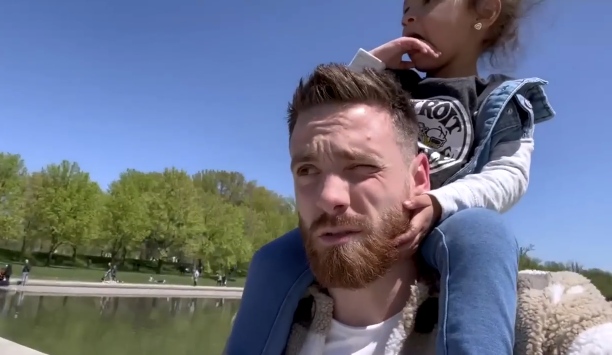
Security at the White House was no joke. We went through three checkpoints, background verifications, and a thorough bag search. But the moment we stepped onto the South Lawn, it felt like a dream. The White House stood proudly before us, timeless and elegant. The American flag fluttered in the breeze. A Marine in full uniform opened the door for us with a courteous nod.
We were ushered into the East Room, which was filled with other families, all dressed to impress. Some were farmers, some teachers, others small-business owners. We spoke with a woman who had created a program to help homeless veterans find housing. Another man had designed a low-cost water filter for rural communities. It was inspiring to hear everyone’s stories and realize we were all here because we cared deeply about something and acted on it.
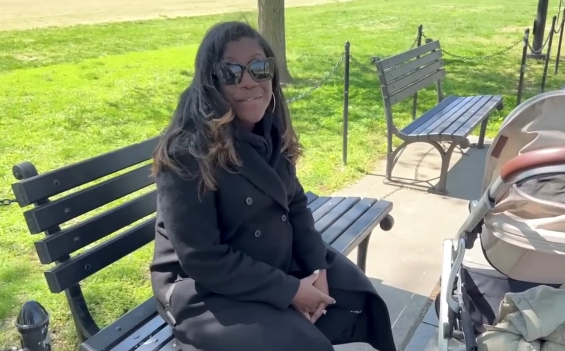
Then the moment arrived. The President entered the room, smiling warmly as he greeted each family. He didn’t seem rushed or distant. Instead, he knelt down to shake Jordan’s hand and told Maya he liked her dress. He spoke to us about our food pantry—he’d read our story, watched our video, and remembered how we’d turned an old school bus into a mobile kitchen. “That kind of community spirit,” he said, “is the heartbeat of this country.”
When our name was called, we walked onto the stage, beaming. The First Lady handed us the award—engraved glass shaped like a torch—and shook our hands. I managed to keep my composure, but I noticed Maya wiping her eyes.
“I didn’t think we were that important,” she whispered to me afterward.
“You don’t have to be famous to matter,” I whispered back. “You just have to do something that helps.”
After the ceremony, we were taken on a private tour of the White House. We saw the historic State Dining Room, the Blue Room, and even peeked into the Oval Office from the hallway. Maya and Jordan took dozens of photos—selfies with the presidential portraits, silly poses in front of the grand staircase. The guide told us stories of presidents past, little anecdotes that made history come alive.

The best part, at least according to Jordan, was meeting the First Dog, Max. As we strolled the Rose Garden, Max bounded up to us, tail wagging, tongue out. Jordan knelt down, and the big golden retriever planted a kiss right on his cheek. “Now I really don’t want to go home,” he said, laughing.
That evening, after a formal dinner with other honorees, we returned to the hotel exhausted but exhilarated. I sat by the window, looking out over the D.C. skyline. The award rested on the table beside me, shining softly under the lamp.
I thought about how something so small—just trying to help our neighbors—had led us here. We never expected recognition. We just wanted to do our part. But this invitation, this unforgettable day, reminded us that kindness matters. That community matters. And that every person has the power to make a difference.
The next morning, as we packed up to head home, Maya asked if she could take the award to school for show-and-tell.
“Of course,” I said. “Tell them the whole story. Every detail.”
And she did. When Monday came, she stood in front of her class and said proudly, “We were invited to the White House—because we helped people.”
And that, to me, was the real award.

